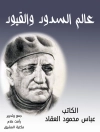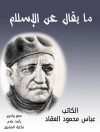‘What journey within our immediate world today would be remotely as interesting, enchanting, instructive and exciting as that to Russia? While our Europe, and especially the capitals, are subject to the inexorably contemporary process of mutual assimilation and resemblance, Russia remains utterly unparalleled.’ Stephen Branch, 1928
After Stefan Zweig’s bourgeois world collapsed with the First World War, he went in search of alternative forms of society, which culminated in a journey through the still young Soviet Union. His perceptions and impressions on the trip remained ambivalent and moved between the generally prevailing glorification on the part of the Western European intelligentsia and the harsh reality of life among the soviet population.
Stefan Zweig’s non-political trip to the USSR is probably one of the most extraordinary travelogues of the 1920s and appears today almost 100 years later as a kaleidoscope into a past that is once again up-to-date.
Sobre o autor
Stefan Zweig (28. November 1881 – 22. Februar 1942) war ein österreichischer Schriftsteller, Dramatiker, Journalist und Biograf. Auf dem Höhepunkt seiner literarischen Karriere, in den 1920er und 1930er Jahren, war er einer der meistübersetzten und beliebtesten Schriftsteller der Welt. Zweig wuchs in Wien, Österreich-Ungarn, auf. Er schrieb historische Studien über berühmte Literaten wie Honoré de Balzac, Charles Dickens und Fyodor Dostoevsky und über entscheidende historische Ereignisse in Sternstunden der Menschheit. Er verfasste unter anderem Biografien über Joseph Fouché (1929), Mary Stuart (1935) und Marie Antoinette.












